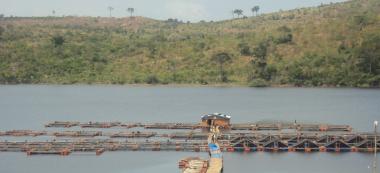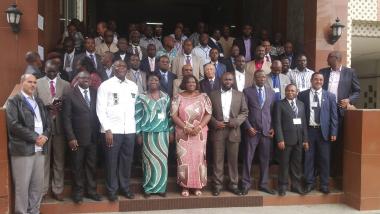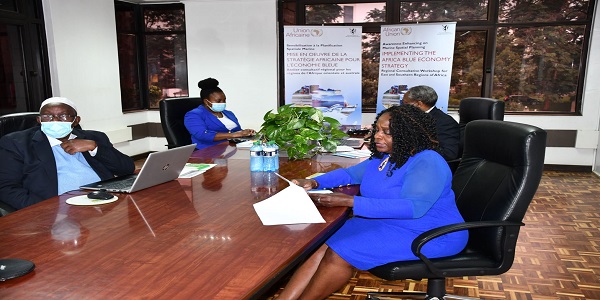
The African Union InterAfrican Bureau for Animal Resources (AU-IBAR), under the auspices of the Department of Rural Development, Blue Economy and Sustainable Environment (ARBE) and along with AUDI-NEPAD, held an online meeting to enhance awareness on Marine Spatial Planning (MSP). The meeting was held on 18th August 2021 and attended by over 85 delegates. The delegates comprised representatives of Regional Economic Communities (RECs), Specialized Regional Institutions, representatives from various Blue Economy Themes in African Union member states, Development partners, and multiple experts.
The meeting was held under the support of the Kingdom of Norway, which has supported the implementation of the Africa Blue Economic Strategy since its endorsement in 2020 by the AU Executive Council.
During the official opening of the meeting, Ms. Francisca Gonah, speaking on behalf of AU-IBAR’s Acting Director, Dr. Nick Nwankpa brought out some important issues. She noted that the Africa Blue Economy Strategy emphasises the need to embrace marine spatial planning (MSP) as a practical way of organizing the use of the ocean space and the interactions among human uses and between uses and the marine environment, particularly during this time of the Blue Economy initiative.’ She further observed that the Africa Blue Economic Strategy identified Marine Spatial Planning as a critical strategic activity to ensure the conservation of aquatic biodiversity. MSP is building upon the essential approaches of integrated coastal zone management (ICZM) and is solely based on the critical principles of the Ecosystem Approach or Ecosystem-based management.
In addition, the statement made by Dr. Bernice Mclean, Representative, AUDA-NEPAD, noted that the pivotal role of MSP is crucial for analyzing and allocating the spatial and temporal distribution of human activities in marine areas to achieve ecological, economic and social objectives that have been specified through a political process. She further observed that although many countries are on their way to operationalizing MSP, several countries face technical challenges towards its implementation within the AU MS through the blue economy strategy. Within this context, the workshop's objective was to provide an opportunity for stakeholders a space for exchange and awareness on MSP.
Dr. Simplice Nouala, on behalf Amb. Josefa Sacko, Commissioner for Agriculture, Rural Economy, Blue Economy and Sustainable Environment (ARBE), noted that marine spatial planning is a giant step towards the implementation of the Africa Blue Economy. He further observed that it is crucially essential to enhance knowledge and demystify the concept of marine spatial planning to balance sustainable use and conservation imperatives and mitigate conflicts. To move issues of MSP forward, Dr. Nouala emphasized the need to create synergies amongst the users of the blue economy resources, particularly during this time when African Union member states and regional institutions have embarked on various initiatives towards blue growth development.
In addition to the opening session, the programme comprised a technical session by Prof. Pierre Failler, Coordinator of Blue Governance, Portsmouth University, UK, that set the scene on Marine Spatial Planning in the context of the Africa Blue Economy Strategy. A presentation on the importance of marine spatial planning in Africa Blue Economy Development was provided by Mika Odido, IOC Coordinator in Africa, and MSP in Transboundary Context was shared by Dr. Ingela Isaksson, Senior Analyst, Swedish Agency for Marine and Water Management. Seychelles, Namibia, and South Africa presented country experiences on MSP implementation. A presentation on the gender perspective on the MPS process, and experiences from UNEP were also incorporated in the programme.
Deliberations from the discussions pointed to MSP as not an end in itself but a practical way to create and establish a more rational use of marine space and the interactions among its benefits, to balance demands for development with the need to protect the environment, and to deliver social and economic outcomes in an open and planned way.
Register to access and collaborate with other stakeholders in fisheries sector

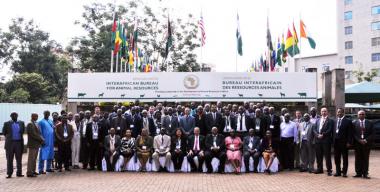
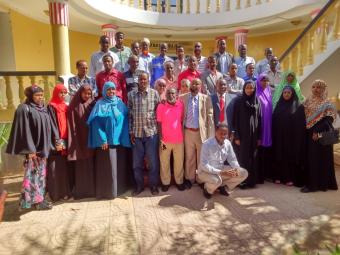
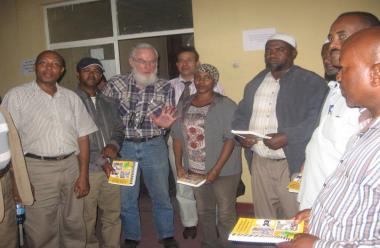
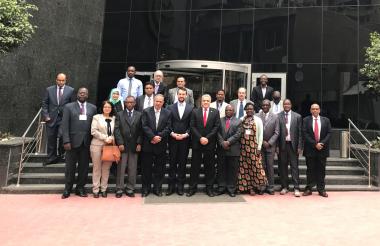
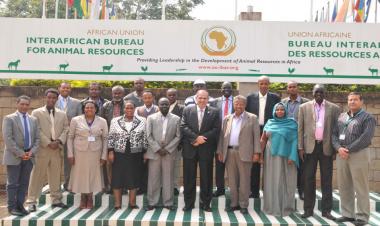
![[© 2014 AU-IBAR. Participants attending a training programme in Surveillance and Epidemiology of Trade-Related Transboundary Animal Diseases being Offered by the University of Nairobi, Faculty of Veterinary Medicine.] © 2014 AU-IBAR. Participants attending a training programme in Surveillance and Epidemiology of Trade-Related Transboundary Animal Diseases being Offered by the University of Nairobi, Faculty of Veterinary Medicine](/sites/default/files/styles/normal_size/public/2020-09/57.jpg?itok=k2u2EVX0)
